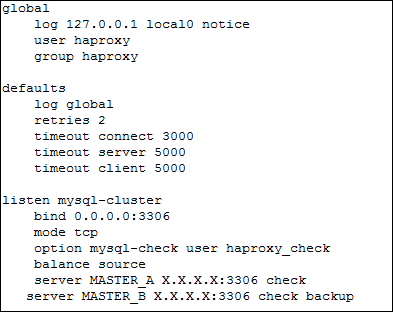We have implemented master-master setup in maria-db. Master A is being used for read\write and Master B is used for backups and MIS operations. We have built this setup so that we do not need to promote slave in case of failure.
Now we want to implement HA PROXY for automatic fail over. In case Master A goes down application should switch automatically to Master B.
Now my question is that if Master A goes down and applications start serving from Master B. But when Master A comes online and is not in sync with Master B what will HA PROXY do, will applications get connected to Master A instantly or HA Proxy will check synch status and let Master A synch up with Master B and then allow applications to connect with Master A.
What parameters need to be added in order to achieve this.
HA PROXY Configuration:

